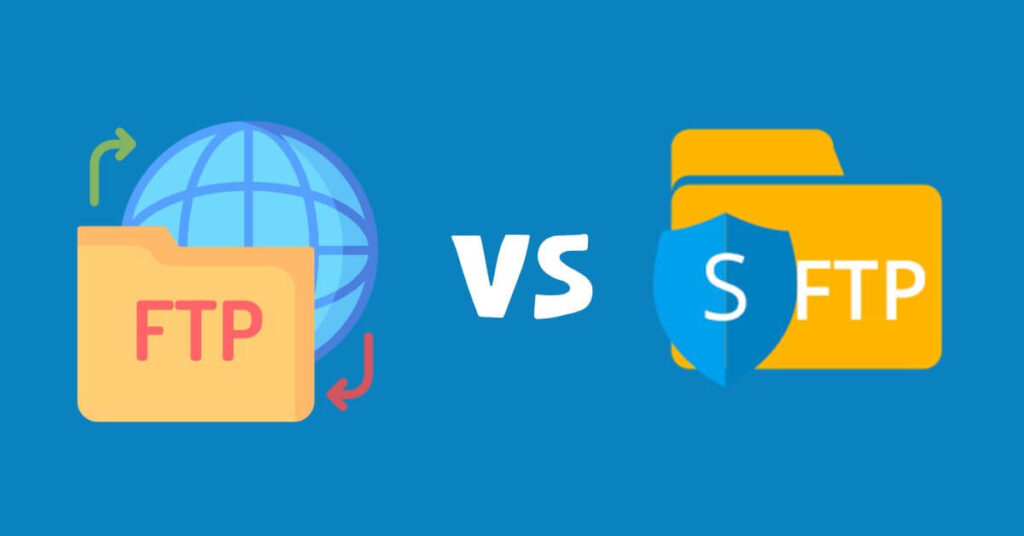FTP vs SFTP: Which is Better – The main function of the internet network is so that the computers in it can exchange data smoothly and safely with each other. To allow this process to happen, of course we need a file transfer protocol that can manage everything. FTP vs SFTP are the most common file transfer protocols in the world.
Both FTP and SFTP, these two protocols function to transfer files between hosts on a network. The basic difference is, FTP does not have a channel that provides extra security when data transfer occurs. Meanwhile, SFTP has this layer of secure sockets.
Even so, FTP is still very widely used today, even though SFTP is actually much more secure. Why is that? Check out the following FTP vs SFTP comparison.
Table of Contents
What is FTP?
FTP (File Transfer Protocol) is a TCP/IP protocol that transfers files from one host to another. It seems very easy to transfer files over a network, but there are actually problems that can arise such as speed problems, or files getting corrupted when they reach the recipient.
In this case, this one file transfer protocol offers a solution that can solve the problem. Unlike other client-server applications, File Transfer Protocol is more efficient because it has separate connections for data and commands. In FTP, the control connection is located on TCP port number 21 and has a simpler way of working. Meanwhile, a data connection that has a more complicated way of working is on port number 20.
Currently, there are many FTP applications that can be used in the network. One of the most popular is FileZilla, but you can also use Cyberduck, WinSCP, and others.
What is SFTP?
SFTP stands for Secure File Transfer Protocol. However, SFTP is also known as SSH (Secure Shell).
In general, SFTP has the same basic function as FTP, which is to send files from one host to another on a network. However, SFTP uses tunneling and delivers files via SSH, instead of transferring them directly through the connection as with FTP.
SSH itself is a cryptographic protocol that makes access to the server more secure. SFTP uses one channel and when sending or receiving data, you must authenticate via the cryptographic key that is in the SSH. This is one of the advantages of SFTP, namely increasing the security layer in data transfer on the network.
Comparison of FTP vs SFTP
One of the things that is often compared between FTP vs SFTP is a security issue, in this case SFTP uses a more secure channel to transfer files. Meanwhile, FTP does not use it and just transfers files just like that. This is because when FTP was first created, network security was not a big problem like it is now.
The data you send via SFTP moves securely between clients because it’s all encrypted. Thus, hackers cannot interrupt the data transfer in the middle of the road and intercept the data that is being sent.
That doesn’t mean that FTP completely ignores security issues, you still need to authenticate with a username and password the first time you use this file transfer protocol.
However, there is no data encryption like that of SFTP, making it prone to cyber crimes such as Man in the Middle where hackers can eavesdrop and steal information by being in the middle of a data transfer path.
This is very dangerous if what you send is a file that contains important and sensitive information. For example, your database credentials, important settings of your website, personal or financial data, and others.
On the other hand, FTP is simpler and easier for beginners to understand. Also, FTP is easier to configure so you can set up and start sending data more quickly.
FTP vs SFTP, Which Should You Use?
In website management, having FTP vs SFTP certainly makes it very easy for you. In addition to sending ordinary files, these two file transfer protocols can help you do remote servers, enter hosting services and manage files.
FTP vs SFTP allows you to replace, delete, and add new files to your website. Between these two protocols, we recommend that you use SFTP/SSH to transfer files or manage website files because the security level is higher. Good luck!

Pradeep Sharma is a author the mind behind Techjustify, where I craft insightful blogs on technology, digital tools, gaming, AI, and beyond. With years of experience in digital marketing and a passion for tech innovation, I aim to simplify complex topics for readers worldwide.
My mission is to empower individuals with practical knowledge and up-to-date insights, helping them make informed decisions in the ever-evolving digital landscape.


